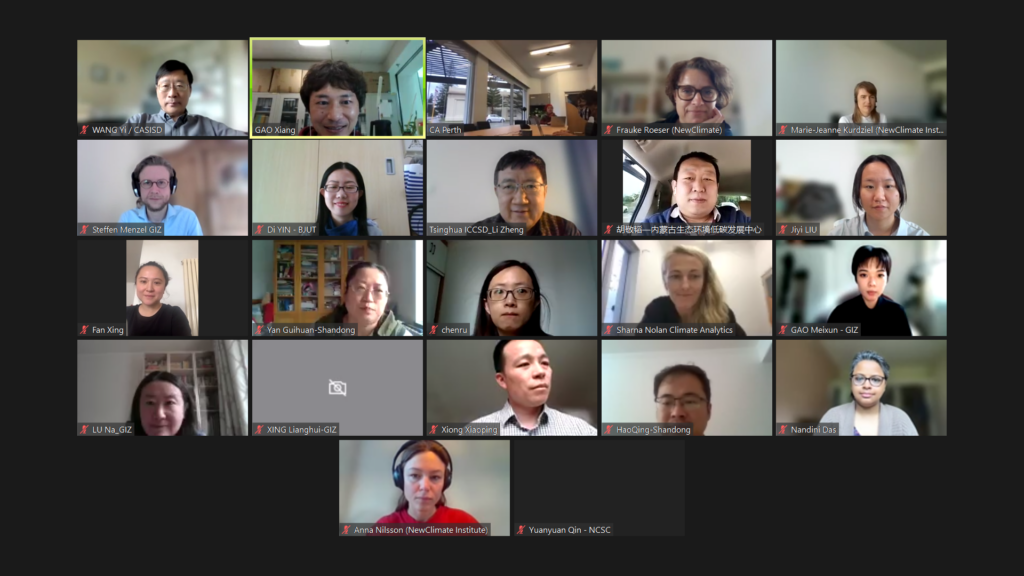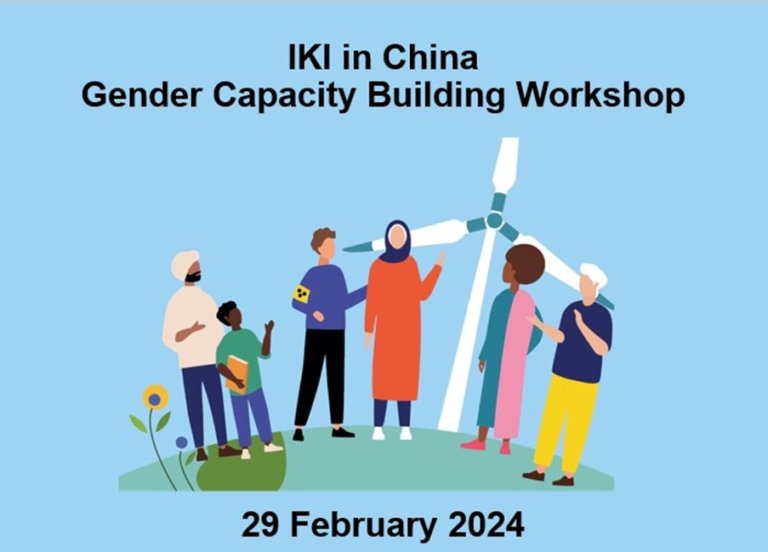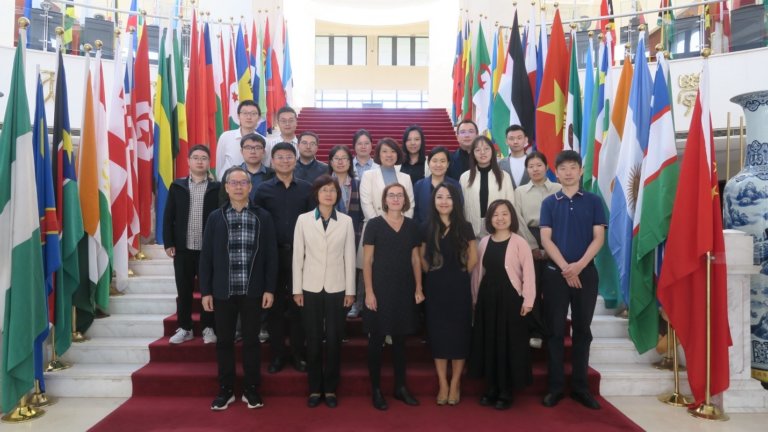On 12 May team members from NCSC, NCI, CA, and GIZ, organized a technical workshop on climate governance in China and Germany. After an introduction of the climate governance systems of China and the EU/Germany, the consortium engaged in a fruitful discussion with leading Chinese climate policy experts from the EPCC.
During the Workshop on Sino-German Experiences on Climate Governance on 12 May, NewClimate Institute (NCI) presented the findings of the 2021 report “Climate governance in the Federal Republic of Germany” to Chinese experts from the NCSC and Expert Panel on Climate Change (EPCC). The National Center for Climate Change Strategy and International Cooperation (NCSC) shared insights from Chinese climate governance experiences. Subsequently, the experts engaged in a fruitful and in-depth debate proposing further areas of research and discussing current challenges.

The 2021 report “Climate governance in the Federal Republic of Germany”, presented by NCI, outlines an extensive collection of knowledge on German climate policy, reaching from the EU climate framework down to the regional state level. Its aim is to provide an overview of the responsibilities of actors and interactions between governance levels within the dynamic field of climate governance. In the context of Germany’s federal climate policy architecture, the report covers an introduction to German mitigation target setting, the Federal Climate Change Act, and the political economy of climate governance.
NCSC presented the current progress of climate governance in China. The Chinese climate governance system comprises a well-developed web of institutions and strategies around the country’s “2030/ 2060 targets” aiming for a curbing of carbon emissions before 2030 with a pathway to carbon neutrality by 2060. Current areas of action are the improvement of the energy mix, the development of detailed national and provincial policies, carbon market regulations, low carbon development models and efforts to adapt to climate change locally.
Experts from China, including Prof. PAN Jiahua, Deputy President of National Panel of Experts on Climate Change (NPECC), Member of the Chinese Academy of Social Sciences, Beijing University of Technology, Mr WANG Yi, Deputy President of National Panel of Experts on Climate Change (NPECC), Deputy President of the Institutes of Science and Development, Chinese Academy of Sciences (CASISD), and Prof. ZHOU Dadi, Member of National Panel of Experts on Climate Change (NPECC), Former Director-General of Energy Research Institute of NDRC, provided their inputs on the presented reports and raised important questions regarding topics of Sino-German cooperation, technical responses to the climate crisis, and current geopolitical challenges.
The discussion between the Chinese experts and the NDC Implementation team revealed a high interest of the participants in the vertically and horizontally integrated climate governance systems in China and Germany.
In the first round of remarks, it was suggested to delve further into the research around the laws regulating the green transition, as well as into the issue of energy security at the different stages of development of China and Germany. Furthermore, specific questions were raised on the division of responsibilities in the German federal state framework and the implementation of climate governance initiatives through the governance of industries.
Subsequently, the discussion focused on the incremental enhancement of the German climate target. How did the shift to 2045 as the new target to reach climate neutrality come about? What is the rationale behind the tightened coal phase-out time schedule? To the issue of energy security, a question on the cancellation of the Nord Stream 2 pipeline in response to the Russian invasion of Ukraine was added. Finally, the remarks referred to the EU’s CBAM proposal, stressing the importance of cooperation and communication in this regard between China and the EU.
In the third round of remarks, the interaction of market mechanisms and administrative planning was discussed. The group underlined the need to expand the exchanges of experiences on this topic between China and Germany.
A last block of feedback focused on the consideration of technological uncertainties in the modelling of emission pathways and the repercussions of geopolitical tensions on energy security. The group agreed that the topic of fundamental security concerns to energy security required further elaboration. In times of rising tensions, nations had to cooperate in the energy realm to ensure that the effort to engage in the decarbonization of energy systems over the long term would not be jeopardized.
In the wrap up of the discussion, the questions and feedback were clustered into six groups of topics: Climate law-making, climate target setting, governmental coordination in the federal state, market mechanisms, technological uncertainties, as well as energy security issues and the geopolitical dimension. The group decided to follow up on these questions over the summer. Results of the joint research shall be complied with and presented later in the year.



